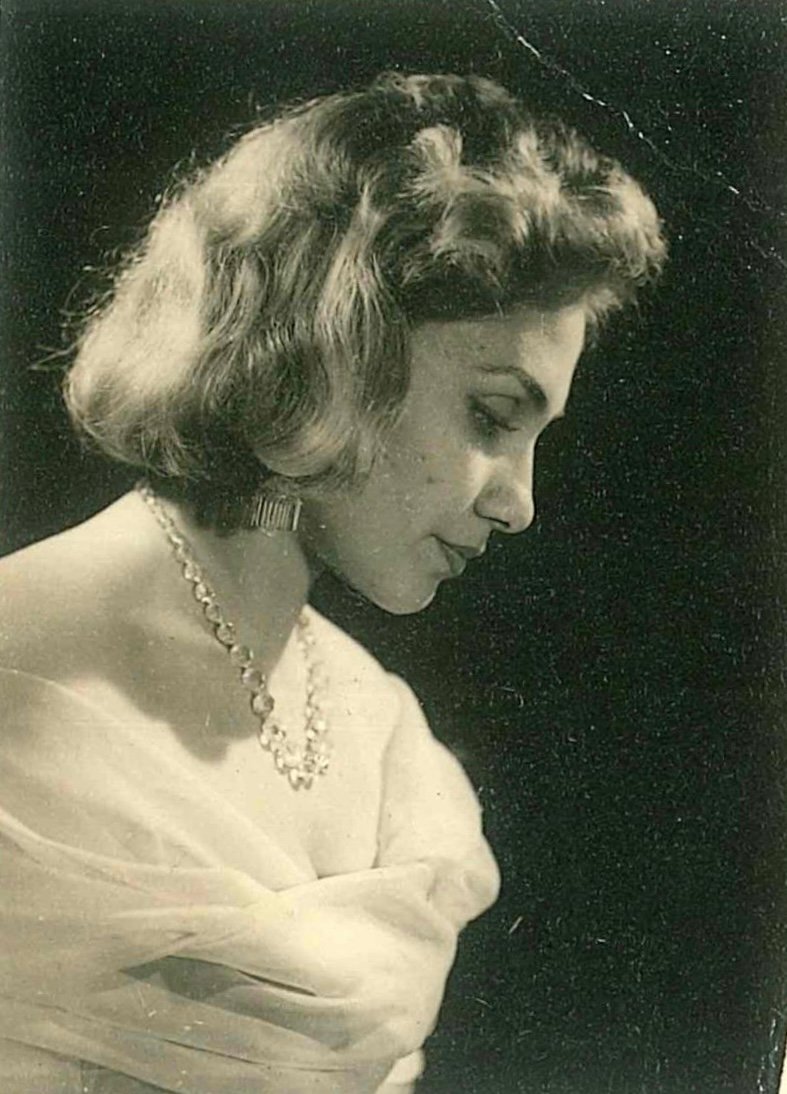Evlin Baghcheban
People All Contents (اولین باغچهبان variation in spelling Evelyn Baghcheban, born Evlin Örge) (8 June 1928 – 31 October 2010). Turkish-born Iranian opera singer (mezzo-soprano) and co-founder of the Tehran Opera Company based at the Roudaki Hall (now Vahdat Hall). Later formed the Tehran Choral Group and Farah Choir.
(اولین باغچهبان variation in spelling Evelyn Baghcheban, born Evlin Örge) (8 June 1928 – 31 October 2010). Turkish-born Iranian opera singer (mezzo-soprano) and co-founder of the Tehran Opera Company based at the Roudaki Hall (now Vahdat Hall). Later formed the Tehran Choral Group and Farah Choir.
Evlin Salem Örge was born on 8 June 1928 in Mersin, Turkey. She became a student at the Ankara State Conservatoire in 1942. While there she met the Iranian composer and fellow-student, Samin Baghcheban, whom she eventually married. She completed her studies with a double major in piano and voice in 1950, the same year as she and her husband moved to Tehran, where they would live until 1983.
Her musical career in Tehran began with piano recitals, the first of which took place in March 1951 at the Farhang Hall. Shortly afterwards, she was hired as a singing teacher at the Tehran Conservatoire (Honarestan-e Ali-e Musighi), where her pupils included Hossein Sarshar (baritone), Soudabeh Safaieh (soprano), Soudabeh Tajbakhsh, Pari Samar (Aryanpour, mezzo soprano) and Pari Zanganeh (spinto).
Evlin Baghcheban was active as a mezzo-soprano between 1951 and 1978 in Iran and also made tours to Europe and the USSR. Her repertoire included standard operatic and vocal works as well as new scores by Iranian composers, in particular her husband. She also appeared as soloist with the Tehran Symphony Orchestra under the baton of Heshmat Sandjari (1964), and with the National Iran Radio and TV (NIRT) Chamber Orchestra conducted by Adrian Sunshine (1974) and Kan Koto (1976).
In 1960, following the formation of an ‘Opera Council in Tehran’ [Daftar-e Opera-ye Tehran also known as Shoray-e Fanni-e Opera-ye Tehran], she became a member and performed in some of their organised events such as Bizet’s one-act opéra comique Djamileh in 1962. In 1967 the Roudaki Hall was inaugurated by the royal family, becoming home to Tehran Symphony Orchestra, National Ballet, and Tehran Opera Company. Baghcheban played several leading roles in operas mounted at the hall, notably as Carmen in Lotfi Mansouri’s staging in 1971. Having been a founding member of the Opera Company and a choral conductor for it, in May 1972 she and eight of her colleagues (Fakhereh Saba, Hossein Sarshar, Soudabeh Tajbakhsh, Vahideh Fatourechi, Alec Melkounian, Alinoush Melkonian, Samin Baghcheban and Ahmad Pejman) resigned from the Company. The main reason, according to her letters, was the mismanagement and nepotism that dominated the Company at the highest levels. Following her resignation and until 1978 her solo appearances were mostly at Tehran’s City Theatre.
Baghcheban pursued a parallel career in choral conducting, reorganising the Tehran Conservatoire Choir in 1958 and becoming its permanent conductor. She also founded and led the Choral Group of the Iran-Soviet Cultural Association in Tehran.
In 1967 she founded the Tehran Choral Group and was invited to direct the choral music for the coronation of Shah Mohamed Reza Pahlavi at Golestan in October the same year.
In 1973 the Farah Charity Foundation commissioned Baghcheban to establish a music school in Tehran for orphaned children. In this school she organised the Farah Choir, whose first public performance took place in November 1974. In 1978 the choir was dispatched to Vienna to record Samin Baghcheban’s Rangin Kamoun [Rainbow] – a collection of pieces for children - and an album of Persian folk song arrangements. By the time of the end of recording Iran had moved towards the Revolution which would dissolve all musical activities.
Rangin Kamoun was later released in Tehran on a cassette, with Farah’s name changed to Mithra, to avoid association with the Shah’s regime. But the recording of the folk songs remained forgotten until 2010 when Evlin passed them to Pejman Akbarzadeh. This were released on CD in Europe in 2018.
Following the 1979 Revolution, Baghcheban and her husband and children remained in Iran and continued teaching. However, in 1983, in view of reactionary and oppressive conditions, they decided to move to Turkey. In Istanbul in 1986, after a few years of inactivity, Baghcheban started teaching piano at the Mimar Sinan Fine Art University, retiring in 1994. She translated the book How to Sing by Lili Lehmann into Turkish and wrote three children’s stories, which she illustrated herself but never published. She died on 31 October 2010 of a heart attack at the age of 81. She was survived by three sons, Rouin (Kambiz, since passed), Kaveh and Farhang.
Sources and bibliography
‘An Ode to Evlin Baghcheban’, narrated by Kaveh Baghcheban.
Choral Music from Persia, Farah Choir, Evlin Baghcheban (conductor), Persian Dutch Network, CD, 2018.
The Days Tehran had Opera : A Tribute to Evlin Baghcheban, Compiled by Kaveh Baghcheban, Amsterdam, Persian Dutch Network, 2020 (including CD).